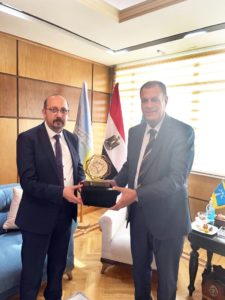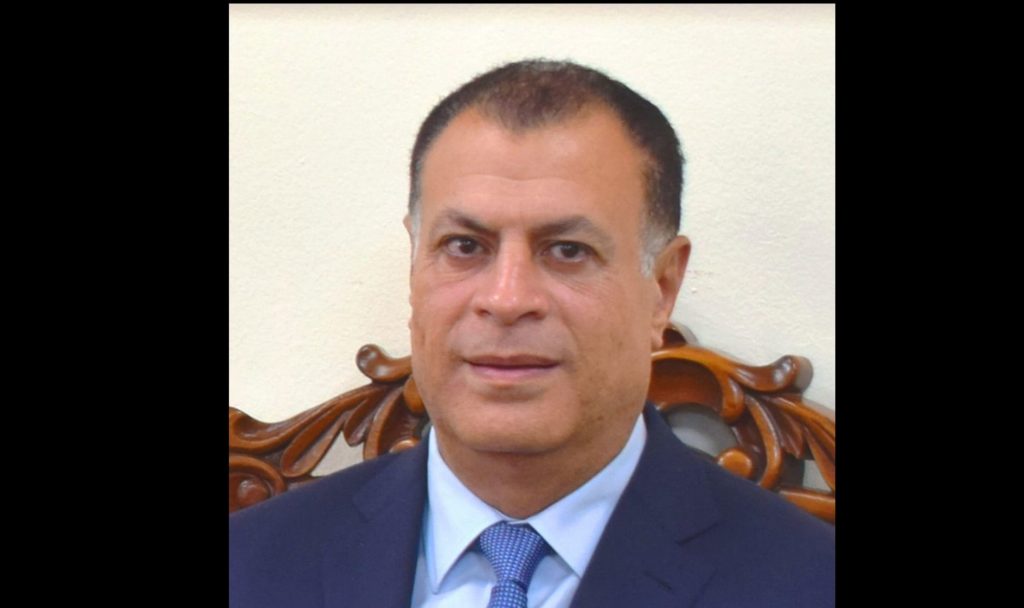Cairo – Egypt’s Abu Qir Fertilizers and Chemical Industries Company, aims to increase its exports to Brazil and enter Latin American markets through direct trade, without intermediaries. The company’s board chair, Abed Ezz El-Regal, told ANBA in Cairo (pictured above).
Regal said Abu Qir already exports to Brazil through distributors and is identifying opportunities through cooperation with the Regional Office of the Arab Brazilian Chamber of Commerce (ABCC) in Cairo.
Abu Qir is one of the largest fertilizer producers in the Middle East, with sales of EGP 16.3 billion (about USD 846 million at the current rate) in the 2021-2022 fiscal year. The company increased by 85% sales over the previous fiscal year from EGP 8.8 billion (about USD 457 million). Net income more than doubled, from EGP 3.5 billion (USD 182 million) to almost EGP 9 billion (USD 467 million) in the same comparison.
According to Regal, the company seeks to fulfill the needs of its customers in the local and foreign markets, supplying both with all types of nitrogen, chemical fertilizers, and byproducts, derivatives, and inputs necessary for their manufacture.

The board chair received a delegation from the ABCC office in Cairo, led by the organization’s regional director, Michael Gamal. They discussed cooperation and how to strengthen partnerships in exploring the Brazilian market with direct sales. The idea is trade without middlemen could result in increased exports to Brazil.
At the meeting, Regal highlighted his company’s great interest in the Brazilian market, considered one of the largest in the world for fertilizers. He recalled the size of Brazilian agriculture and said there are promising opportunities for integration between Egypt and Brazil, as the Arab country is one of the world’s largest fertilizer and agrochemical exporters.
Gamal praised the cooperation with the company. According to him, nitrogen fertilizers are highly sought after in Brazil, and there are promising opportunities for Egyptian fertilizers to have a significant share in the Brazilian market. According to Gamal, the ABCC is preparing a trade mission for fertilizer companies to Brazil later this year to learn more about the market’s needs and discuss the challenges limiting export expansion.
Gamal told of initiatives carried out for the Egyptian fertilizer trade with Brazil, such as the meeting between representatives of Egyptian companies with the Brazilian minister of Agriculture, Livestock, and Food Supply, Marcos Montes, when the authority visited Cairo earlier this year. On the occasion, the group discussed with the minister at the ABCC office in Cairo the barriers to increasing sales of Egyptian fertilizers to Brazil and the Arab country’s potentiality in the area.
The regional director said Brazil is one of the largest food-producing countries in the world, and Egypt imports maize, soybean, sugar, and other products from Brazil. He also said local production meets only 15% of the country’s fertilizer needs, making it depend on imports to sustain agricultural production. According to him, this means an opportunity for Egyptian fertilizers, as Egypt is the only Arab country with a free trade agreement with Mercosur, and, therefore, the product can enter the Brazilian market without taxes.
Translated by Ahmed El Nagari and Elúsio Brasileiro




